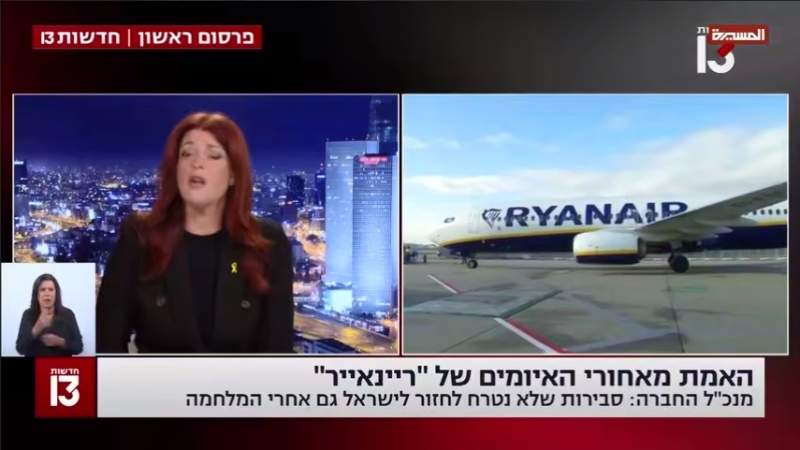Yemen's Red Sea Campaign Inflicts Deep Economic Toll on Israel, Hitting Aviation and Shipping

News - Yemen: Mounting evidence indicates that Yemen's military operations in the Red Sea are inflicting significant damage on "Israel's" vital economic infrastructure, with the aviation and maritime sectors bearing the brunt of the impact, forcing international companies to reconsider operations and the Israeli government to provide emergency financial support.
The depth of this economic pressure was highlighted by a statement from Ryanair, Europe's largest low-cost airline. The carrier announced it is considering a permanent exit from the Israeli market. This follows the repeated suspension of its flights due to security concerns, with operations currently halted until at least late October.
Ryanair's CEO, Michael O'Leary, cited two primary reasons: ongoing security threats from Yemeni operations that have targeted Ben Gurion Airport (Lod) and the subsequent closure of the dedicated low-cost passenger terminal. This forces the airline to use the main terminal (Terminal 3), which imposes significantly higher landing and takeoff fees. O'Leary concluded that the combination of insecurity and inflated costs makes resuming flights unprofitable, with aircraft likely being redirected to more stable European destinations.
Ryanair is not alone; other low-cost carriers like easyJet have also suspended services. This collective withdrawal has drastically reduced competition in the Israeli aviation market, leading to a sharp increase in ticket prices, diminished purchasing power for travelers, and a blow to the tourism industry.
The repercussions extend to Israel's maritime sector. The port of Eilat (Umm al-Rashrash) on the Red Sea has seen navigation traffic nearly grind to a complete halt as shipping companies avoid the region. In response, the Israeli government has been forced to propose an urgent bailout plan for the port worth approximately $13 million.
According to Hebrew media reports, the funds are designed to cover the additional costs incurred by diverting commercial ships away from the Red Sea. These vessels are now taking longer and more expensive routes via the Cape of Good Hope or the Suez Canal to reach Israel's Mediterranean ports. The subsidy is to be split equally between the government and ship owners or importers as a financial incentive to encourage continued use of the strategically isolated Eilat port.
However, Israeli assessments suggest these financial incentives may be insufficient. In an environment of persistent security uncertainty, major shipping companies remain reluctant to risk their assets in the tense region.
The Yemeni campaign has effectively constrained Israeli navigation and commerce, demonstrating that the consequences of the conflict are extending beyond the military sphere to directly impact the economy, investment, and the cost of living, placing a heavy burden on the state's finances and consumers.
Since November 2023, the Yemeni Armed Forces have conducted a persistent campaign against international shipping in the Red Sea and launched missiles and drones toward Israel. They state these operations are in solidarity with Palestinians in Gaza and will continue until the Israeli siege is lifted.
#Yemen #Israeli Aggression 25-09-13-
12:08
Zionist Channel 12: Unions agreed to block the transfer of weapons and military equipment to “Israel” and to demand a halt to all shipments bound for Israel including civilian goods
12:08
Zionist Channel 12: An emergency meeting was held at Genoa port bringing together dockworkers’ unions from across Europe to coordinate a unified policy against Israel
12:08
Zionist Channel 12: Workers at Genoa port in Italy staged a strike and protested inside the port, forcing the ship to return without its cargo
12:05
Zionist Channel 12: Dockworkers in Italy refused to load containers onto a cargo ship belonging to “Zim” last Saturday
11:37
Demonstrations and marches held in European and Arab cities in solidarity with Gaza and denouncing the Israeli attack on the Global Freedom Flotilla





